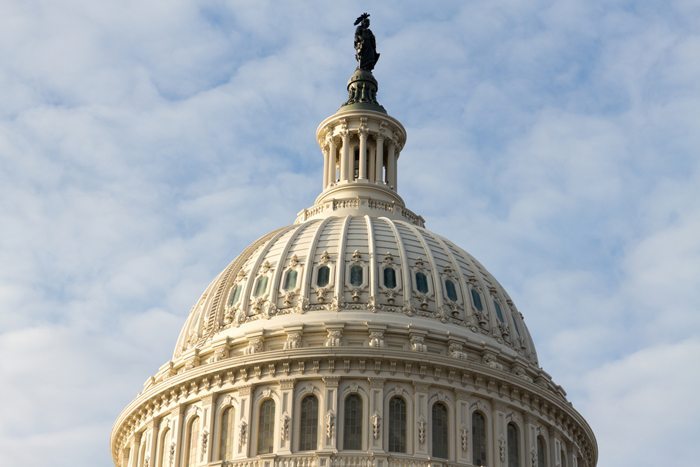Money to Process Rape Kits Falls Victim to Congressional Budget Squabbles
After months of squabbling, Congress last week was unable to pass a budget bill that included funding to decrease the backlog in rape kits across the country.

Congress last week was unable to pass a budget bill that, among many other things, included funding to reduce the backlog in rape kits across the country, passing instead only a continuing resolution—a stop-gap appropriations bill—to keep the government funded through mid-December.
Rape kits—a collection of the evidence taken from a person’s body after they report a sexual assault to police—are often essential for solving a crime. After evidence is collected from a victim, the rape kit is ideally sent to local law enforcement for processing and then to a crime lab for testing.
The DNA collected through the kits, once tested, can identify the victim’s assailant, connect that assailant to other crimes, and exonerate innocent suspects.
The problem is that many kits are never tested. The Rape Kit Action Project estimates that there are 100,000 kits awaiting testing in public crime labs across the country and another 300,000 that have not made it from law enforcement storage to the lab.
In recent years, as public outcry over the backlogs has increased, some state and local governments have stepped up to increase timely testing. Illinois and Colorado have come out the strongest, enacting legislation requiring law enforcement agencies to submit kits to crime labs for timely analysis. Several other states have passed legislation to inventory untested kits but have stopped short of requiring those kits to then be tested.
State initiatives to reduce the backlog have proven effective in solving crimes and bringing justice for sexual assault survivors. In 2009, after more than 11,000 untested kits were found abandoned in a police warehouse in Detroit, the city was awarded several grants to test the kits. After testing the first 2,000, more than 100 potential serial rapists were identified, and 14 people have been convicted.
Still, the backlog across the country remains enormous, and states complain that a lack of resources and personnel prevent them from tackling the problem with full force.
For its part, the federal government has given money to state and local testing initiatives, like the one in Detroit. And in 2004 Congress passed the Debbie Smith Act, a law aimed at supporting state and local government efforts to reduce their backlogs.
But the Debbie Smith Act has its problems. For example, a 2013 report found that of the $691 million given to the program between 2008 and 2012, nearly half had been used for purposes other than directly reducing the backlog, like making lab improvements and testing of evidence not from rape kits. And even the Debbie Smith Act is an empty promise without funding from Congress.
To supplement the Debbie Smith Act and the efforts of state and local governments, Obama included in his 2015 budget proposal a plan to allocate an additional $35 million in grants for community rape kit initiatives.
The Department of Justice would spearhead the program, which would help pay for state and local kit testing, as well as the investigation and prosecution of sexual assault cases that emerge from the tests, according to the Washington Post. It would also help guide comprehensive rape kit processing reform and best practices.
Reducing rape-kit backlogs generally has bipartisan support on both state and federal levels. The Debbie Smith Act, for example, was reauthorized this month with ease.
For much of this year, Congress seemed poised to fund the Department of Justice program. In May, the House passed a version of the 2015 budget bill that included $41 million for the initiative—$6 million more than the Obama administration had originally requested.
Like every budget proposal in the past few years, Congress has proven incapable in coming to a decision on funding.
In June, Senate Majority Leader Harry Reid (D-NV) pulled the budget bill from the floor after Republicans added several partisan amendments, including one making it more difficult for the EPA to regulate coal-fired power plants. Finally, this week, Congress passed a short-term budget that will keep the government funded until mid-December and does not include funding for new programs. The $41 million is not going anywhere, having fallen victim to political battles unrelated to rape-kit testing.
